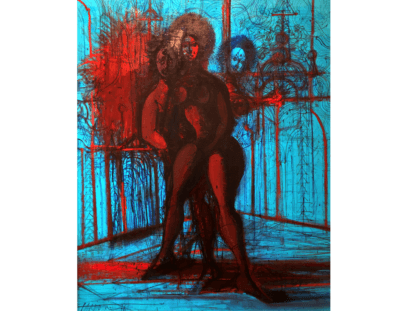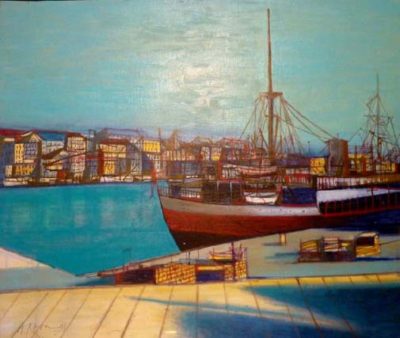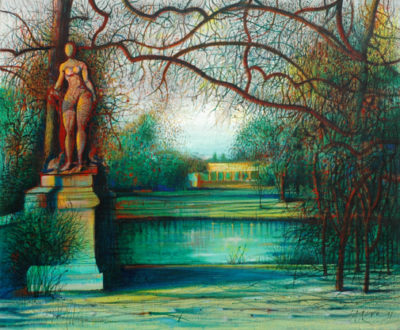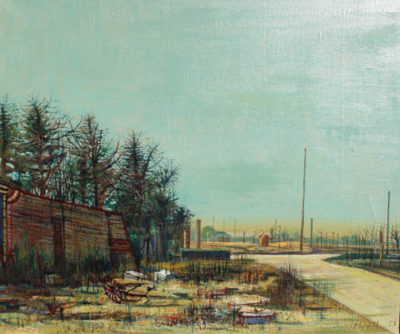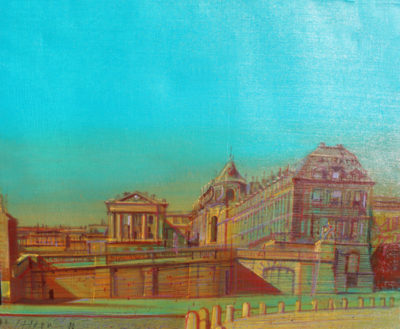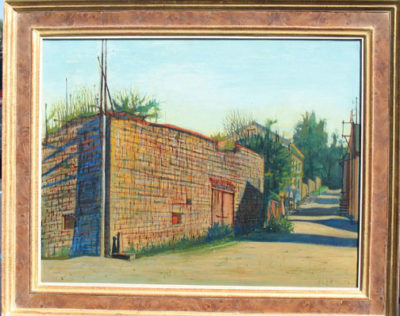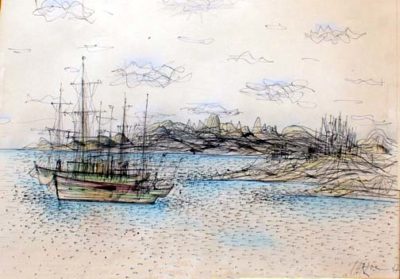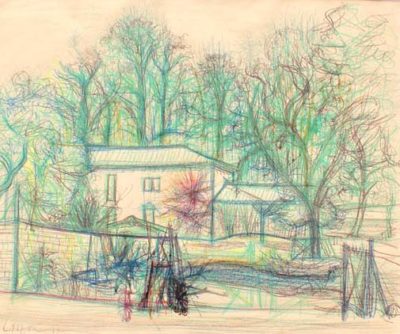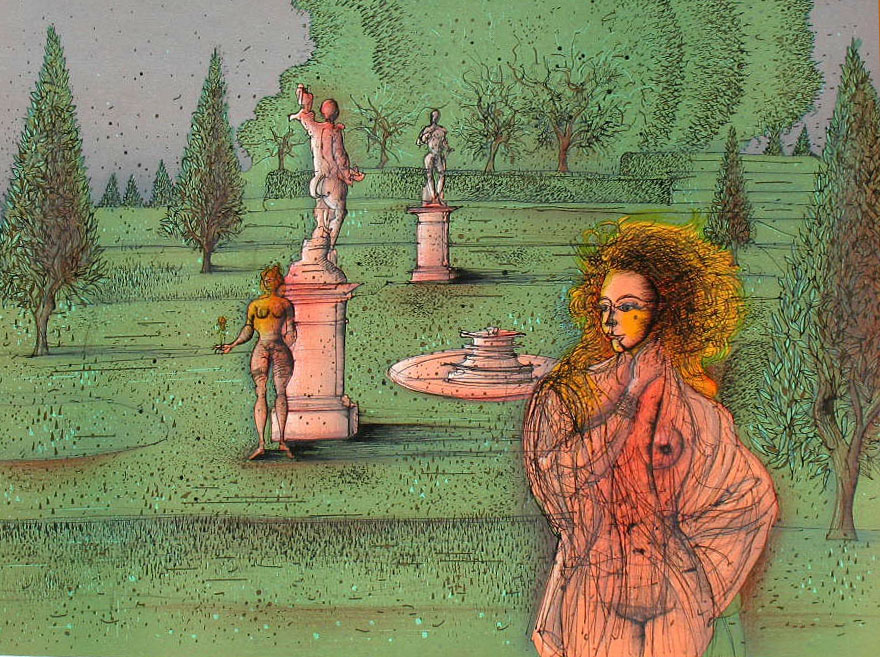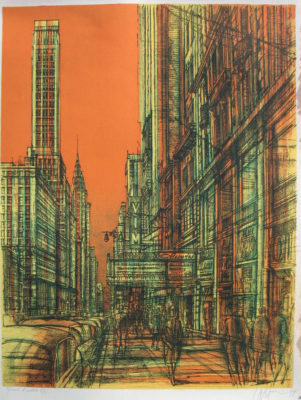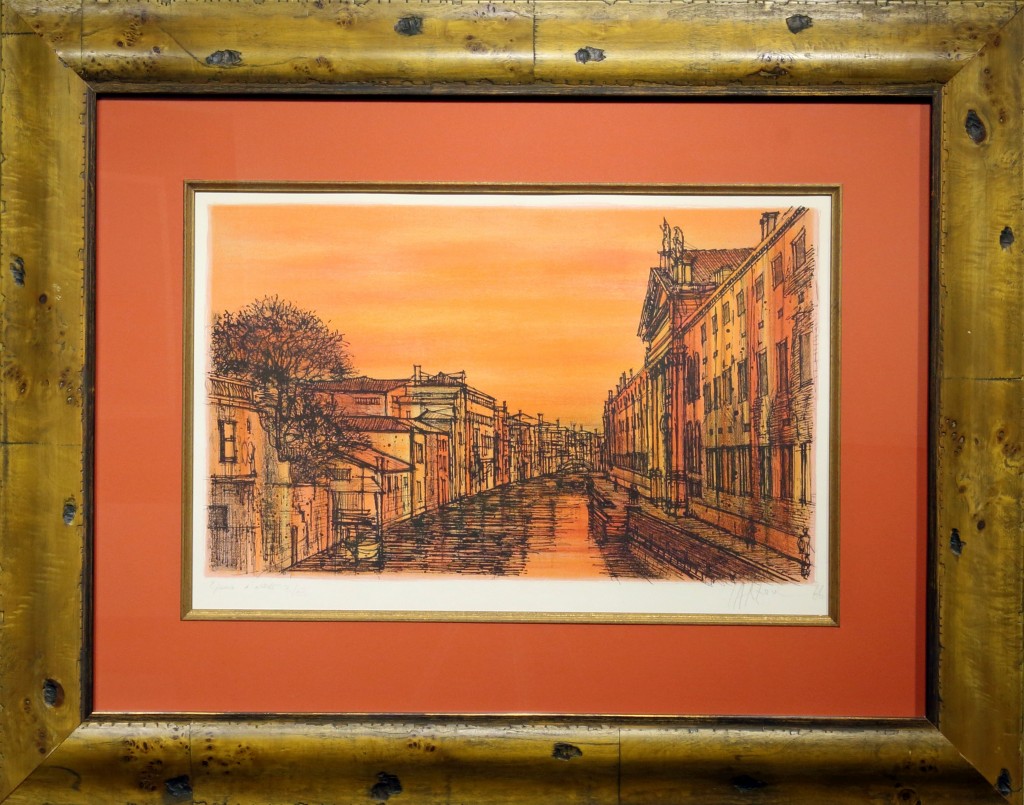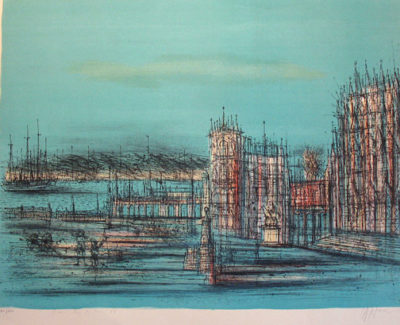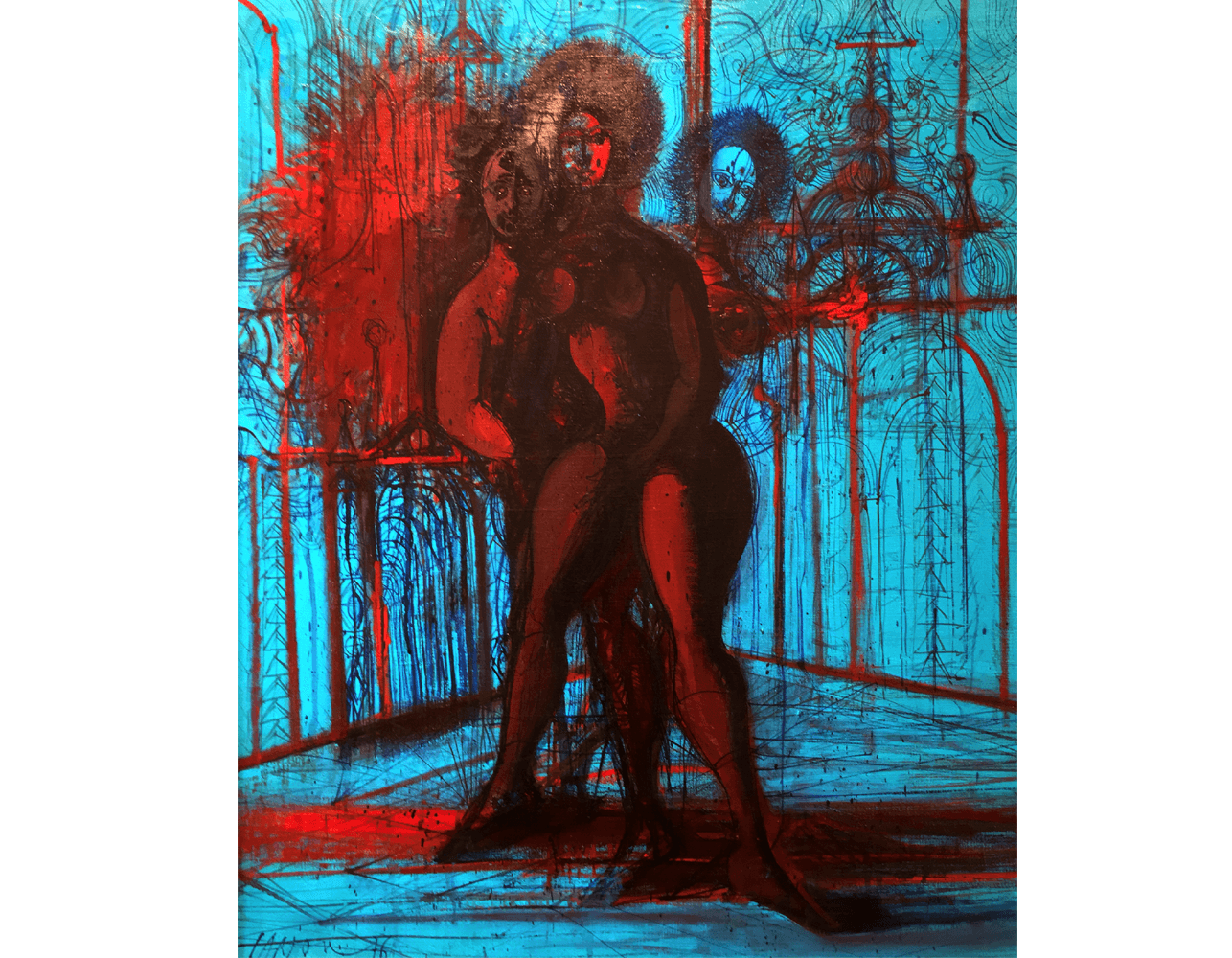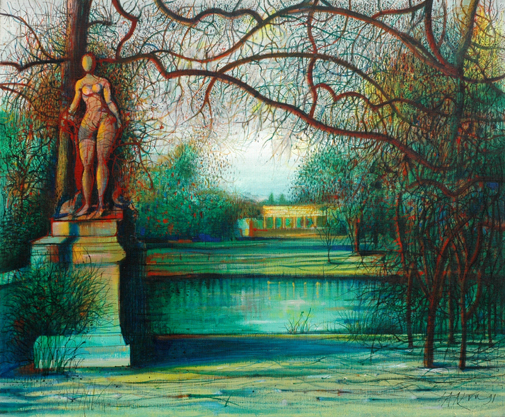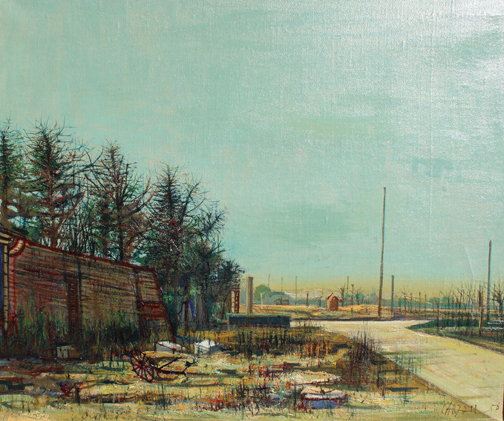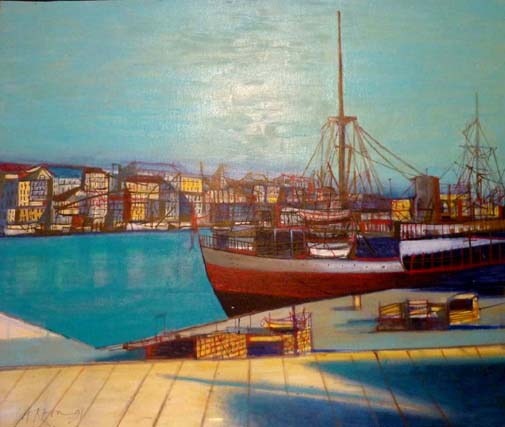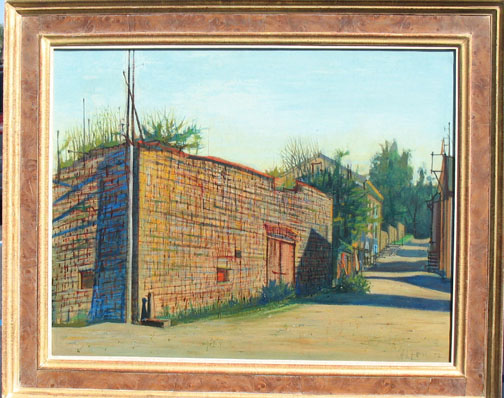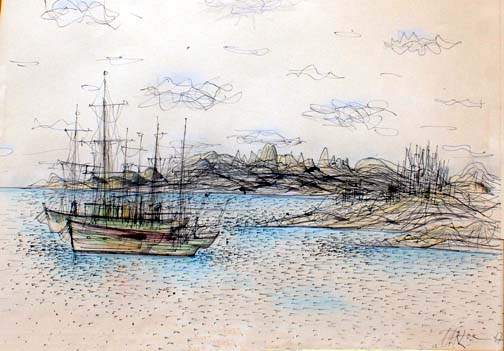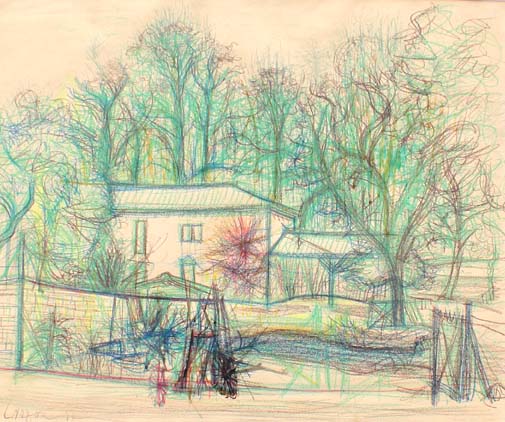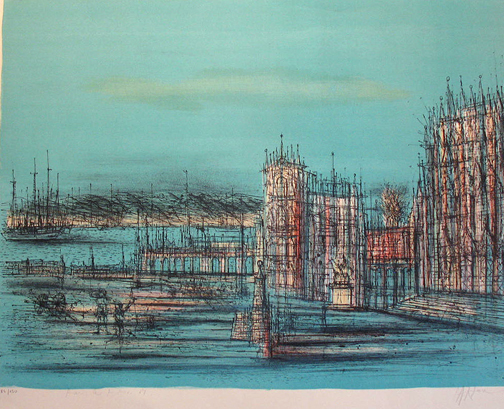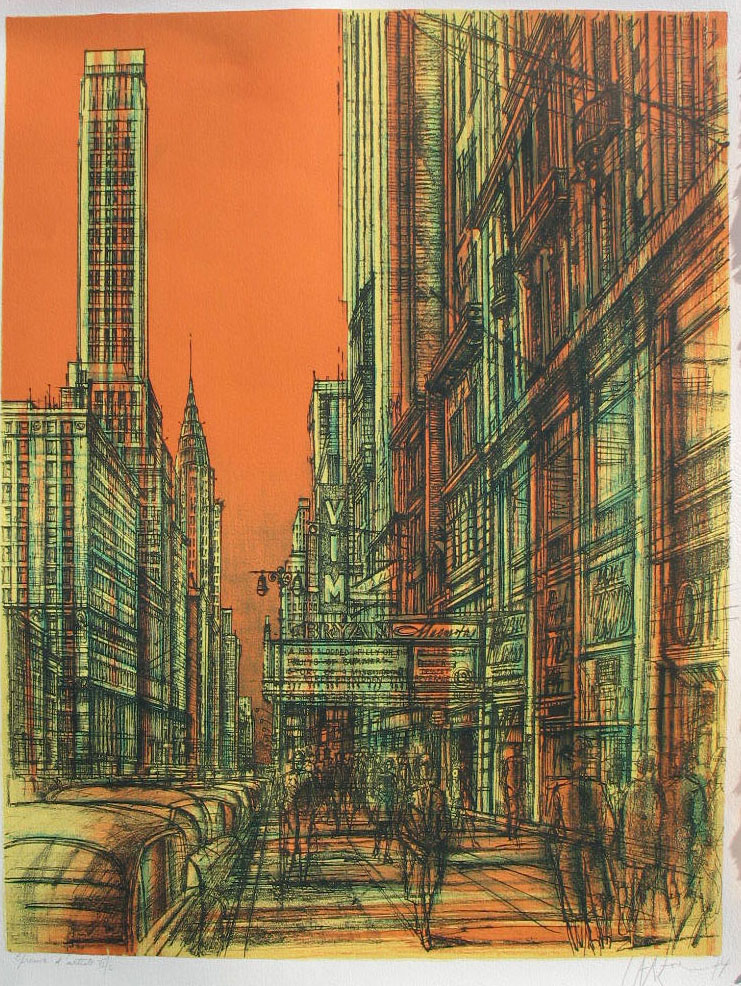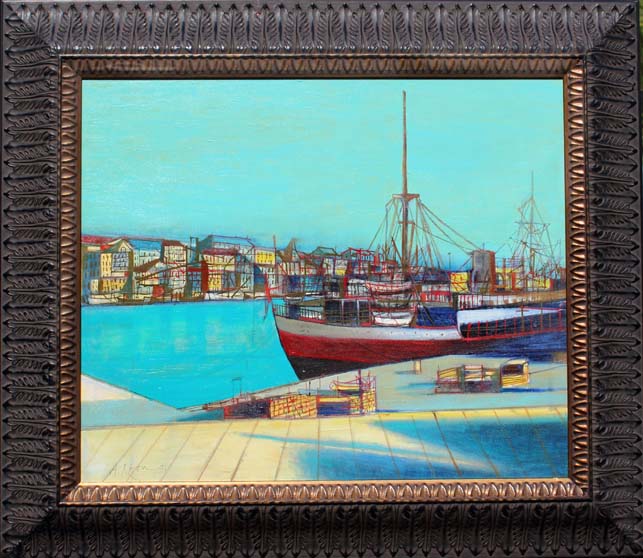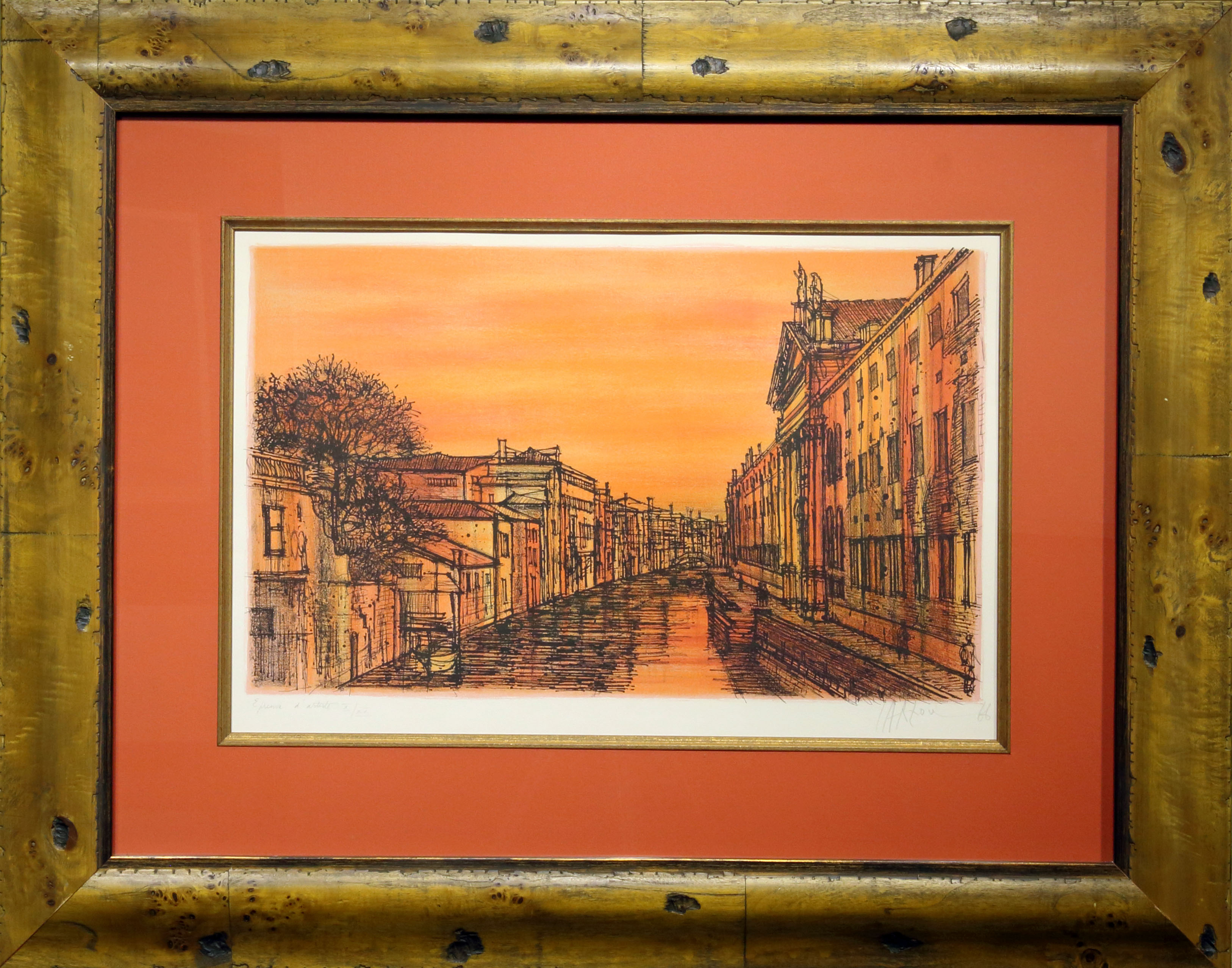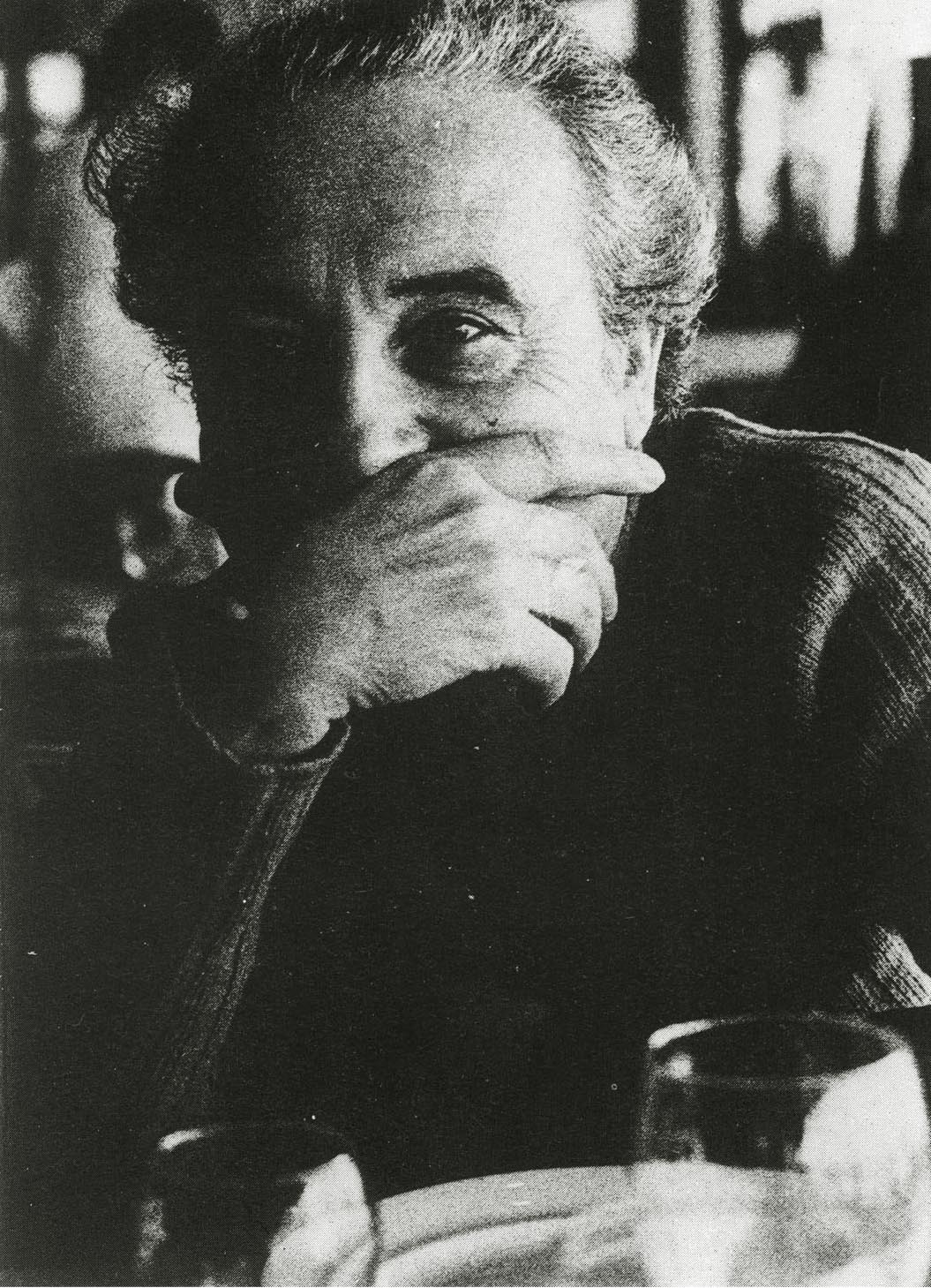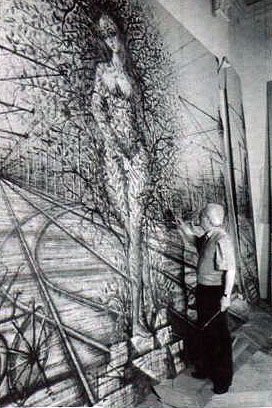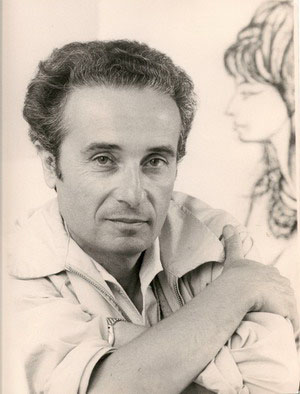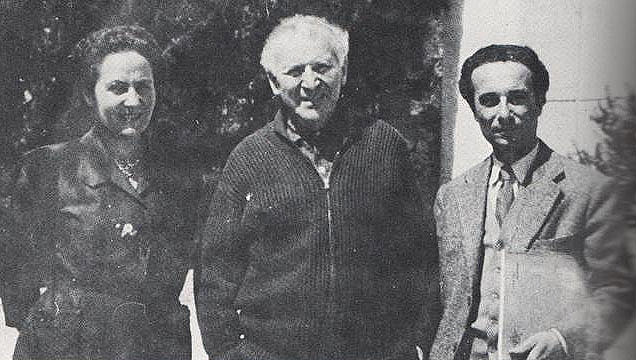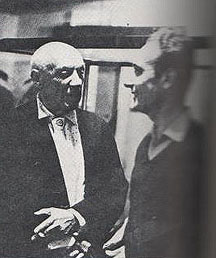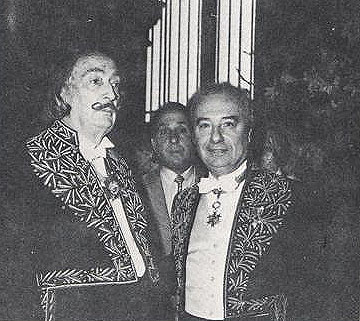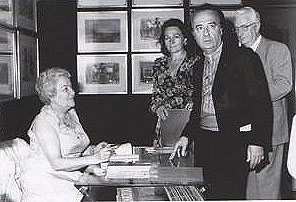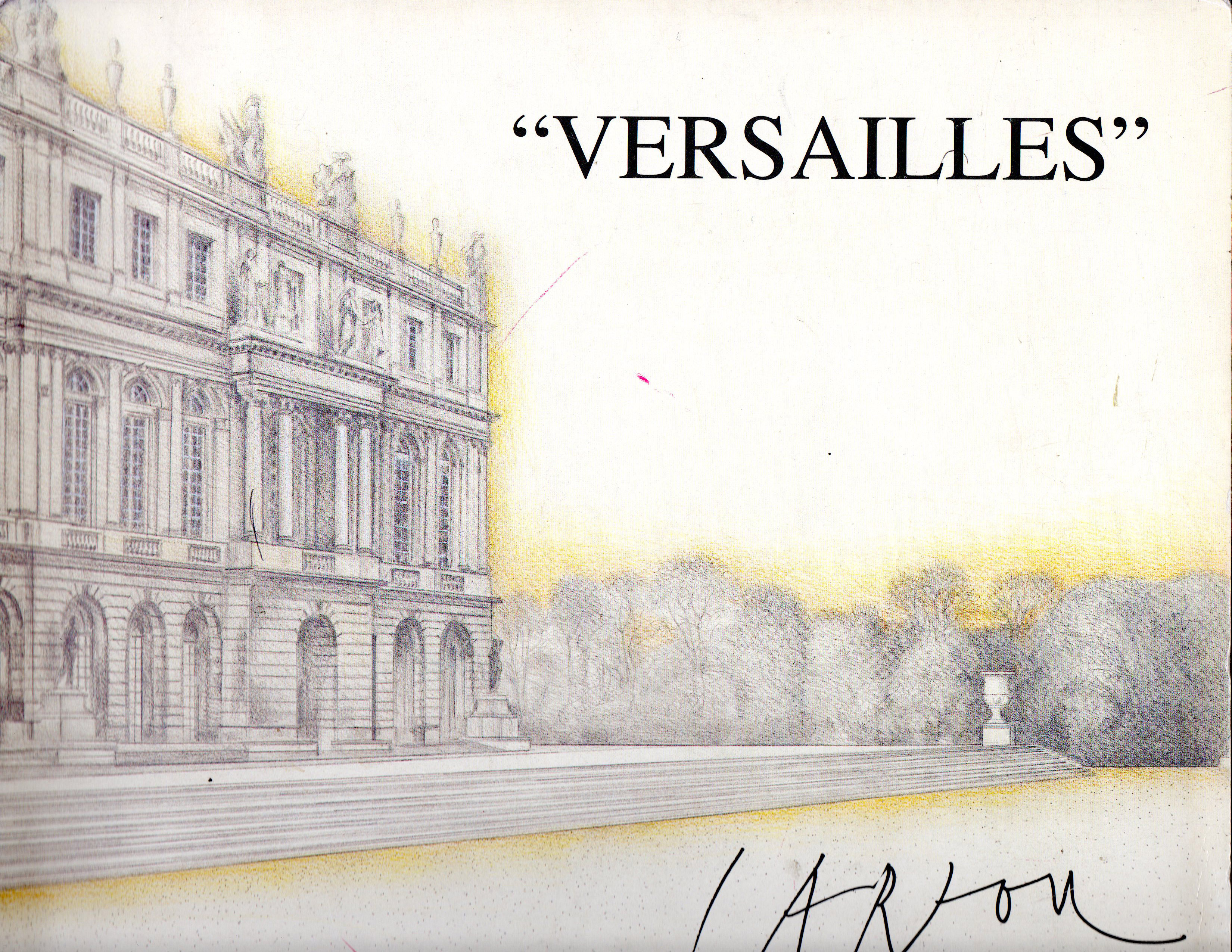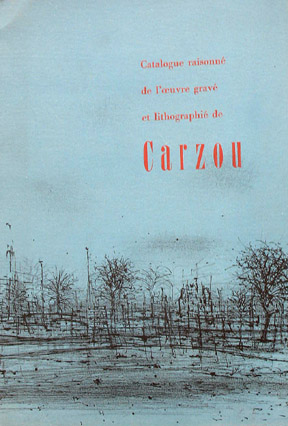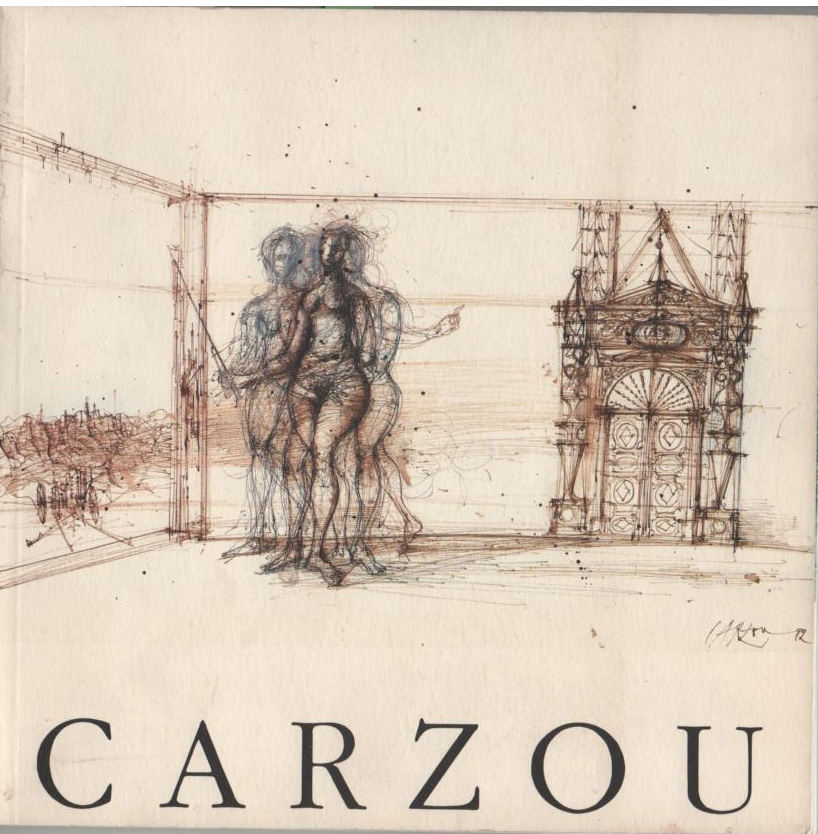Jean Carzou
(1907-2000)
“When I work form nature or in my studio, I leave the world of reality for a sort of religious realm where my hand seems to obey impulses form an invisible force. And when I am seated before my easel, I disappear into a universe different form ours; it’s like entering into prayer”. _ Jean CARZOU (1907-2000)
On graduation from the Lycée. Carzou devoted himself to studying painting in Montparnasse studios. He first showed his work at the Salon des Indépendents in 1930. Then he took part in various Salons, notably the Surindépendents, Salon d’Automne, Ecole de Paris, “Painters, Witnesses to their Times,” Comparaisons, etc. His first one-man show was held in a Rue de Seine gallery in 1939. Since then there have been more than one hundred one-man shows in Paris and elsewhere in France and abroad. He has been part of most official state exhibitions out side Paris and abroad: Biennials of Venice, São Paulo, Genoa: and exhibitions of French art in Yugoslavia, The Netherlands, Italy, Switzerland, Japan, Norway, and Australia.
Carzou has won numerous prizes in painting, among them: the Hallmark Prize (three consecutive times in 1949, 1952 and 1955); Grand Prix de I’lle-de-France in 1954; Grand Prize for National Education, Tokyo, 1955; and the Grand Prix “Europe” at the first Bruges Biennial in 1958. He is an officer of Arts and Lettres and the Légion d’Honneur.
In 1950, he traveled to Egypt and Lebanon for several exhibitions. In 1953, his exhibition devoted entirely to Venice was a huge success. The same year, a poll of museum-goers named Carzou’s The Lovers’ Lane their favorite painting. In 1955, a referendum organized by the magazine “Connaissance des Arts” placed him among the ten best painters of the post-war generation.
Carzou’s seven sets for the theater have attracted world attention: the set for “Incas” from Jean-Philippe Rameau’s 1952 “Indes galantes;” “Giselle” in 1954 for the Paris Opera: the “Wolf” in 1953 for Roland Petit: “Athalie” in 1955 for the Comedie Française; “After Eden” for the Harkness Ballet: “Jeanne et ses juges,” by Thierry Maulnier in 1968; and in 1969, the much acclaimed sets and costumes for “La Périchole,” by Offenbach for the Théâtre de Paris. Carzou also has produced a prodigious graphic oeuvre. A catalogue raisonné of his etchings and lithographs is being published by André de Francony. The first two volumes have already appeared, one with a preface by Roger Caillois, the other by Marcel Brion, and introductions by Pierre Mazars, and texts by Maguy Furhange.
Carzou has illustrated books by T. S. Eliot, Ernest Hemigway, Albert Camus, André Maurois, François Mauriac, Jean Follain, Jacques Audiberti, Pierre MacOrlan, Eugéne Ionesco, Shakespeare, Arthur Rimbaud, Edgar Allan Poe, and others. He executed tapestry cartoons, “Invitation to a Voyage,” for the Gobelins factory: “La Périchole” for the “Mur du Nomade”; and two for Pierre de Tartas, Carzou painted a panel for the luxury liner “France,” and has decorated several ceramic plates.
In 1957, Carzou’s famous exhibit at the David and Garnier Gallery, The Apocalypse, inspired by modern times, attracted widespread attention. “Escales,” a show of watercolors at the same gallery, also generated great excitement. In 1959, Carzou traveled to the United States to attend the opening of his first exhibit in New York at the Wildenstein Gallery. In 1960, Provence, which he often has visited since 1958 was the theme of his exhibition at the David and Garnier Gallery.
Jean Carzou throughout the years
Books of Carzou’s works
Since about 1958, he has favored the warm tones of the late forties over the green-blue colors of the intermediate period. Tension rose in his work and crystallized into his current period. This climate, hinted at in The Apocalypse, culminated in the 1963 exhibition “Summer Light” at the David and Garnier Gallery. Here, the painter’s subject matter is a color, sulfur orange; ports, railroad tracks, and landscapes bathed in a strong fiery light.
In 1964 and 1965, several exhibitions of his work were held in France and abroad. In June 1965, he traveled to Greece. The same year, he exhibited black and white drawings with color highlights at the David and Garnier Gallery. In 1966, major exhibitions were held at the Palais de la Méditerranée in Nice, and the Musée de I’Athénée in Geneva. In the fall of 1966, Carzou traveled extensively in the U.S.S.R., and particularly in Armenia, where a major show of his prints and stage set was organized. This exhibit was extraordinarily successful. In 1968, he designed sets for “Jeanne and her Judges,” by Thierry Maulnier at the Mai de Versailles. In 1967 and 1968, Carzou showed his prints widely. In 1968, a major retrospective exhibition was held in Cologne. In November of the same year, an important exhibition, “Ritual Figures,” inaugurated the new E. David Gallery. Carzou retuned to the themes of his youth. The paintings, with their dominant reds, represented interiors where couples of hieratic and enigmatic figures seem frozen in expectation. The painter’s son, Jean-Marie, a graduate in fine arts, wrote a remarkable preface to he catalogue. The exhibit was enormously successful. In 1969, Carzou etched about twenty copper plates to illustrated Rimbaud’s “Illuminations,” and executed about thirty color lithographs for Jules Verne’s “From the Earth to the Moon.” In 1969, he spent brief periods in Switzerland and Sweden for exhibitions, and traveled to Lebanon and Syria.
In the autumn of 1969, he traveled again to the Moscow and Leningrad, and by train, then continued to Armenia. In 1972, he made a second trip to the United States. Another exhibition was held in Tokyo in 1971. Throughout 1972 he prepared a major exhibition of about sixty drawings and watercolors entitled “Graphic” at the Tamenaga Gallery in 1973. In 1975, Vision Nouvelle presented a retroslpective of twenty five years’ work in lithography and etching. The Paris Opera included Roland Petit’s “The Wolf” in its repertory. The Comédie Française presented a revival of Racine’s “Athalie” with its Carzou sets. The Angers theater presented Offenbach’s “La Périchole” with Carzou’s complete set of decors.
In 1976, the Nichido Gallery in Paris showed Carzou’s recent paintings and drawings on a single theme. Blue-green reappeared among the bright reds. Several exhibitions of the artist’s print work were organized outside Paris to mark the publication of the second volume of the catalogue raisonné. Carzou spent May in Cannes, where he, Tennessee Williams, Constantin Costa-Gavras, and Georges Schéhadé were members of the film festival jury. In September, the French postal services issued a stamp by Carzou. For the occasion, the Postal Museum sponsored a large exhibition of Carzou’s paintings, drawings and lithographs. Carzou began a series of lithographs commissioned by the Sociéteé des bibliophiles de I’Automobile Club de France for “Le Château d’argol” by Julien Gracq. Concurrently, he worked on his longstanding series of paintings of Versailles, the theme of his next exhibition.
In July of 1977, Jacques Chirac, the French Prime Minister, presided over Carzou’s retrospective exhibition at the Château de Val in Corrèze. There were also retrospective exhibitions in Switzerland, Luxembourg, Rochecheouart, the Château des Hayes, and Pérouges, near Lyons. Carzou was awarded the National Order of Merit by the President of the Republic. In December of the same year, he was made a member of the Académie des Beaux-Arts, where he replaced Jean Bouchaud. On April 4, 1979, he became a member of the Institut de France.
Carzou pursues his work in the great tradition of painting. He labors alone, a witness to his times, uninfluenced by passing fashions, demonstrating originality and individuality separate form the evolution of contemporary art. His compositions, his figures, and his landscapes evolve in limbo between dream and reality. Railroad tracks, enigmatic figures, unknown ports all appear out of nowhere, and mysterious domains surround dreamlike figures often encased in iron armor. Crumbling palaces by faraway seasides reveal nostalgia for the past and anxiety for the future, while mercenary armies march into grand halls where women stand adorned for strange ceremonies.

